When the Republicans Were the Woke Party
WIDE AWAKE!
the Woke Young Men of the Republican Party
"We ought to have some good rousing meetings in this county. We should be wide awake in every town, so that when the leaves fall in November, the worn out Democracy (Democratic Party) may fall to and “sleep, the sleep that knows no ending.”
at Danbury & Litchford CT
Aug. 30,1860
Iowa Newspaper Nov 5, 1861
Reports on NYT & Wide Awakes
DISGUSTED--the New York Times is wearied of torch-light processions. The 37,000 Union exhibition there the other night was too much. The Times calls “Wide Awake, Minute men and Little Giant parades pretty and highly respectable child's play.” It says:
“To say that grown men to array themselves in uniform, and bearing torches, to go about the streets in that undistinguishable torchlight, supplied by gas and kerosene, and obscured by smoke, is not the wisest conceivable plan of promoting a partisan cause, may seem to be unfair and splenetic, but it is certainly a truism.”
Classic Wide Awake uniform with oil skin cloaks, hats and oil lamps
(note most of the men wear beards, mustaches, and/or mutton chop sideburns. This was a recent fashion that had evolved over the 1850s. Men in the 1840s were almost always clean shaven. Lincoln himself grew a beard after his election to not appear such an unfashionable country bumpkin in Washington, DC)
Below, an old veteran of the Wide Awakes recalls its formation
April 14, 1895 The New York Times, page 28
Mr. Lincoln Called Them Wide-Awakes
A Republican Club in Hartford So Designated by Him in 1860
From the Independent
It was on a train that
was two hours late that Mister Lincoln came to the Charter Oak City in the
early evening of March 5, 1860. A meeting at which he was to deliver the main
speech was due to open in a scanty 15 minutes. Without a thought of solace for
the inner man, the hearty rail splitter stepped into one of the crazy public
carriages of the Hartford of 1860 and bade the jehu to sprint for the Old City
Hall, in which the meeting was to be held.
A large crowd had gathered in the building.
In it was a larger infusion of young men than was usually the case in
antebellum political assemblies. The President of the meeting was but 29, but
he combined with natural coolness, solid qualities which are possessed by very
few men who have experienced twice 29 years period. He was George G Sill, since
then Lieutenant governor of Connecticut. In introducing the gaunt ex-
frontiersman, Mr. Sill referred to him as, “one who has done yeoman service for
the young party,” with a slight emphasis on the word “yeoman,” sufficient to
remind his auditors of the democratic birth and unpretentious appearance of Tom
Lincoln's son. This happy stroke, made as it was with the delicacy of a rapier
rather than with the emphasis of the bludgeon, caught the fancy of the crowd.
It was probably with it in mind that Mister Lincoln, in a few words preliminary
to his address, after explaining the cause of his delay, styled himself a “dirty-shirt”
exponent of Republicanism. His gaunt, homely figure, unpretending manner,
conversational air, careless clothing, and dry humor made him at once a
favorite with the audience, who felt that he was indeed a man of the people.
Mr.
Lincoln's speech was meaty, logical, convincing. It dealt largely with the
question of slavery.
After the meeting was over, Mr. Lincoln,
escorted by Mr. Sill, entered an open carriage. Several hundred young men
closed in around the vehicle, and, forming spontaneously in military ranks,
accompanied the vehicle in progress to the house of Mayor Timothy M. Allwyn.
They saluted their favorite with storm after storm of enthusiastic cheers.
Turning to Mr. Sill, Mr. Lincoln said, humorously: “The boys are wide awake.
Suppose we call them the “Wide-awakes.”
His suggestion was
followed. A few days later, a marching Republican club was formed, and its
originators gave to it simply the name “The Wide Awakes.” Other marching clubs
followed fast and thick in its wake. To each one, as it was christened, was
given the name “Wide-awake;” and from Stonington to Salisbury, Connecticut was
fairly speckled with “Wide-awake clubs.”
Wide Awake Parade July 26, 1860
The
Mountaineer (Tennessee)
TORCH
LIGHT PROCESSION. —The Black Republicans greeted the return of Messrs. Covode,
Burlingame, Grow, Blair, and Morris, on the 26th at Philadelphia, by an immense
torch-light procession, with music., and a grand entertainment was given them
by Henry G. Carry. The meeting at the square was so large that there was
speaking from four stands. There was great enthusiasm when the speakers
introduced the names of the Chicago nominee. Resolutions were offered
condemning, in the strongest terms, the Administration and its veto policy, and
pledging support to the Pacific Railroad, Internal Improvements, the Republican
policy, and the Chicago and Harrisburg nominations. After the adjournment, the
procession stopped in front of the Continental Hotel, and Burlingame and Covode
were called out.
A meeting
of the Friends of Sam Houston is called for in Schenectady, July 16th to
nominate an electoral ticket in New York and designate a candidate for President.
A Catechism for the Wide Awakes
Are They Not Traitors in Disguise?
From the Charleston, S.C. Mercury
September 20, 1860
Now let us ask these “wide awakes” a few questions and
ascertain what will be their replies in case they dare to make any in truth.
If, gentlemen, your organization has not been of a surreptitious character, how
was it possible for you to enroll 400,000 names on your black lists, unknown to
the great public at large? If your doings and designs are open, manly,
honorable and independent, why do you meet in secret places, or have an
unpublished understanding about the manners and means by which your
designs are to be carried out? Why is it that you have regular military drills--
for such they are-- in a semi military uniform? Why did you select the dead
hour of midnight as the time for your turn out in the streets, when your globe
lamps of metal could throw a shadow over your faces and make them
unrecognizable at a distance of a few yards? By what custom or precedent are you authorized
as a mere political party to form a politico-military organization, when
every man has a right to go to the ballot box of his own free will and accord,
and deposit his vote, without the escort of a military guard? Where is the
necessity or shadow of reason for the formation of such politico material
organization to secure the right of voting for your men, when that right
already exists, and no similar organization has ever existed in our fair
country at any former time? Are your objects not of an intermeddling,
mischievous character? Is it not an understanding among you and especially your
leading active spirits, that you are to assemble at a moment’s warning, in
order to aid by force in the operations of the Underground Railroad, and the
rescue of Fugitive Slaves from the hands of legal authorities? Is it not an
understanding amongst your 400,000 officials, rank and file, that in the event
of the introduction of Slavery into anyone or more of the Territories of the
United States, you are to send from amongst yourselves armed forces, in
order to take the negroes back by force, and convey them to Canada? And
finally, are you not a revival, under a new and mysterious name, with
new, or additional and more mischievous aims, of the old Know-Nothings, or Dark
Lantern political party, which never assumed a military form or character; and
would not the name Night Owls, as they are night birds of mischief and prey, be
more applicable to your organization and aims?
By CAROLINA IN GOTHAM
New York Sept. 20, 1860
August 30, 1860
At
Danbury-- ever wide awake, since the days of the Revolution, in regard
to all good words and good works--a large and enthusiastic Wide Awake Club has
been formed, which numbers among its members the most active and promising
young men of the place, and which is doing yeoman service for our party and
principles. On Wednesday evening last, this club turned out in full force with
uniforms, torches, banners and music. After parading the principal streets,
they halted in front of the Wooster House, and with a large concourse of other
citizens, listened to short addresses from Ex-Gov. Dutton of New Haven, N.L.
White of Danbury, Amos S. Treat of Bridgeport, and Henry S. Sanford of New
Milford. The greatest enthusiasm and good feeling prevailed, and without doubt Danbury
will give a good account of herself in November.
We ought to have some good rousing meetings in this county. We should be wide awake in every town, so that when the leaves fall in November, the worn out Democracy may fall to and “sleep, the sleep that knows no ending.”

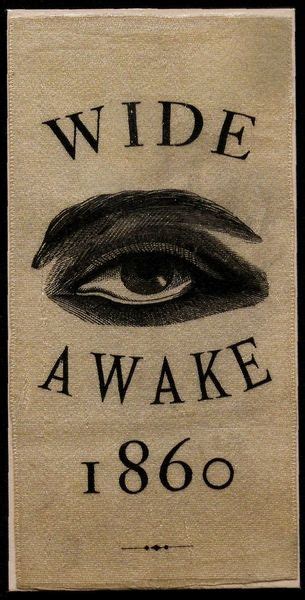









_is_a_member_of_the_(blank)_Wide-awake_Club_LCCN2004665362.jpg)


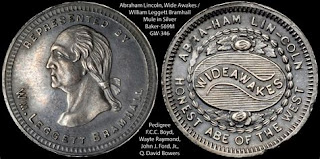



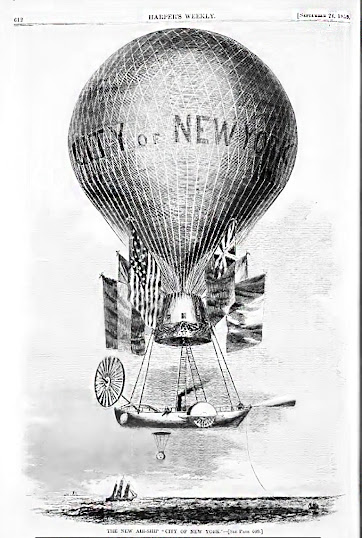
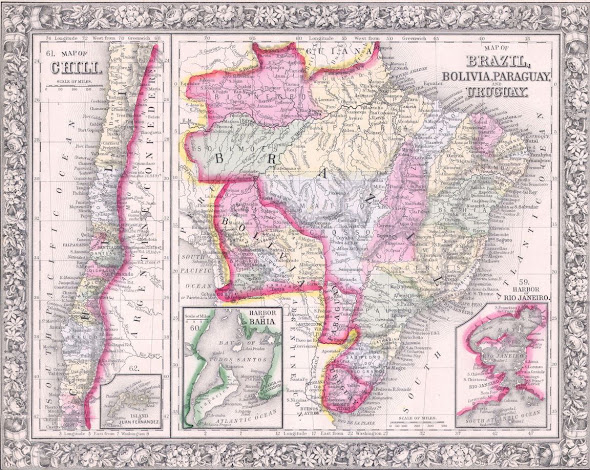
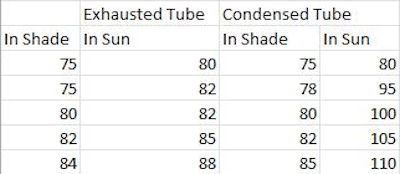
Comments
Post a Comment